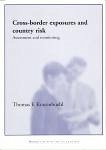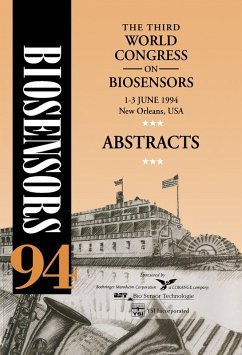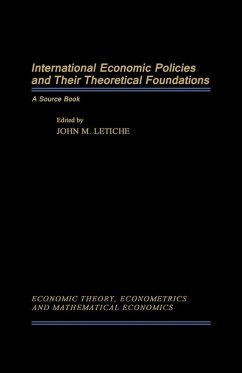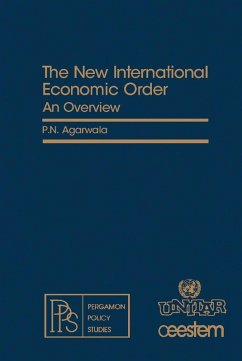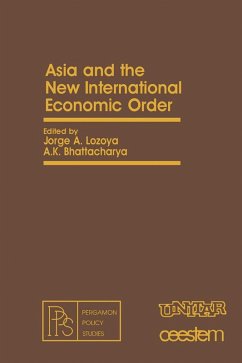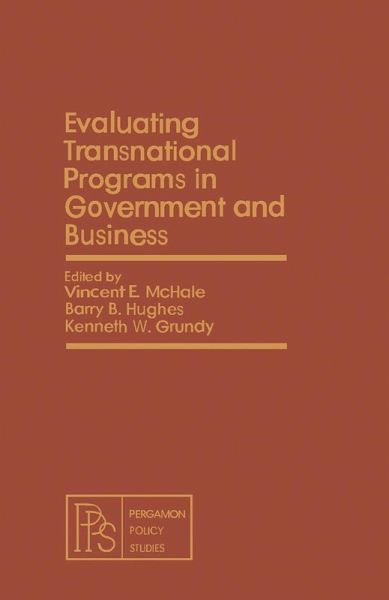
Evaluating Transnational Programs in Government and Business (eBook, PDF)
Pergamon Policy Studies on Socio-Economic Development
Redaktion: McHale, Vincent E.; Grundy, Kenneth W.; Hughes, Barry B.

PAYBACK Punkte
20 °P sammeln!
Evaluating Transnational Programs in Government and Business is a collection of papers presented at a symposium entitled ""Evaluating Transnational Programs,"" conducted at Case Western Reserve University during the 1977-1978 academic year. The symposium was organized to address the various issues and controversies surrounding adequate methods for effective policy evaluation and assessment at the transnational level. The book explores the conceptual, methodological, bureaucratic, political, and organizational factors that hinder sound evaluation of government and private programs with transnat...
Evaluating Transnational Programs in Government and Business is a collection of papers presented at a symposium entitled ""Evaluating Transnational Programs,"" conducted at Case Western Reserve University during the 1977-1978 academic year. The symposium was organized to address the various issues and controversies surrounding adequate methods for effective policy evaluation and assessment at the transnational level. The book explores the conceptual, methodological, bureaucratic, political, and organizational factors that hinder sound evaluation of government and private programs with transnational implications. This monograph consists of 11 chapters and opens with an introduction to methodological issues in the transnational field. It then reviews the development of various world modeling activities and compares them from the standpoints of characteristics, structure, methodological underpinnings, applications, and criticisms. The World Integrated Model is used to assess United States policy options regarding agricultural exports and oil imports by placing them in a broader transnational context. The following chapters focus on various problems in the evaluation of U.S. foreign economic policies, including foreign trade and investment policies. The criteria used by development banks in the processing of loan requests are also considered, along with non-economic objectives in economic development assistance programs; the role of multinational corporations as agents of technology transfer and their effects on changing U.S. policies regarding foreign investment. The final chapter deals with the growing need for transnational appraisal of the impacts of institutions on basic human values. This book will be of interest to business and government officials as well as social and political scientists.
Dieser Download kann aus rechtlichen Gründen nur mit Rechnungsadresse in A, B, BG, CY, CZ, D, DK, EW, E, FIN, F, GR, HR, H, IRL, I, LT, L, LR, M, NL, PL, P, R, S, SLO, SK ausgeliefert werden.





